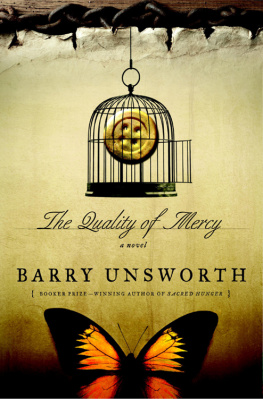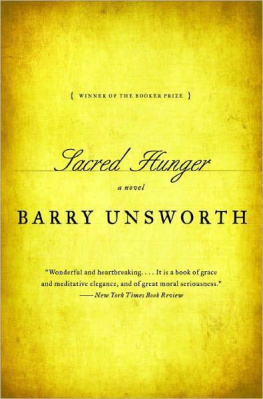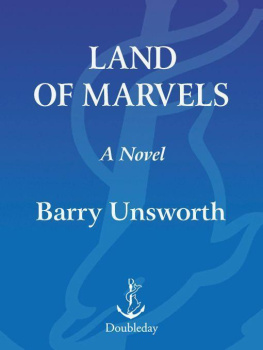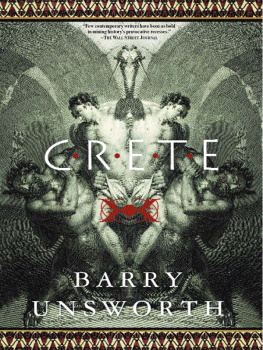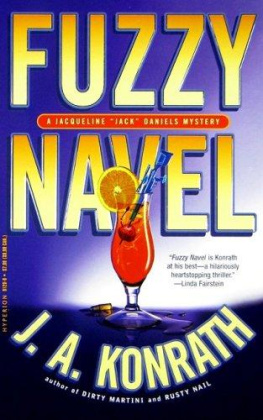Barry Unsworth - The Ruby in Her Navel
Here you can read online Barry Unsworth - The Ruby in Her Navel full text of the book (entire story) in english for free. Download pdf and epub, get meaning, cover and reviews about this ebook. genre: Computer. Description of the work, (preface) as well as reviews are available. Best literature library LitArk.com created for fans of good reading and offers a wide selection of genres:
Romance novel
Science fiction
Adventure
Detective
Science
History
Home and family
Prose
Art
Politics
Computer
Non-fiction
Religion
Business
Children
Humor
Choose a favorite category and find really read worthwhile books. Enjoy immersion in the world of imagination, feel the emotions of the characters or learn something new for yourself, make an fascinating discovery.

- Book:The Ruby in Her Navel
- Author:
- Genre:
- Rating:4 / 5
- Favourites:Add to favourites
- Your mark:
- 80
- 1
- 2
- 3
- 4
- 5
The Ruby in Her Navel: summary, description and annotation
We offer to read an annotation, description, summary or preface (depends on what the author of the book "The Ruby in Her Navel" wrote himself). If you haven't found the necessary information about the book — write in the comments, we will try to find it.
The Ruby in Her Navel — read online for free the complete book (whole text) full work
Below is the text of the book, divided by pages. System saving the place of the last page read, allows you to conveniently read the book "The Ruby in Her Navel" online for free, without having to search again every time where you left off. Put a bookmark, and you can go to the page where you finished reading at any time.
Font size:
Interval:
Bookmark:
THE RUBY IN HER NAVEL
By Barry Unsworth
I
When Nesrin the dancer became famous in the courts of Europe, many were the stories told about the ruby that glowed in her navel as she danced. Some said it had been stolen by a lover of hers - who had gone to the stake for it - from the crown of King Roger of Sicily, others that it had been a bribe from Conrad Hohenstaufen for her help in a plot to kill that same king. The plot had failed, they said, but she had kept the ruby and paid for it in a way that contented Conrad even more than the death of his enemy, vindictive as he was. As time passed the stories ranged further and grew wilder: the gem was a gift from the Caliph of Bagdad, it was sent her by secret courier from the Great Khan of the Mongols with promises of more wealth if she would only come and dance for him and share his bed. And of course there were those who said that Nesrin was a shameless woman and the ruby was the reward of her pledge with the Devil. The troubadour who accompanied her made songs about the ruby, some happy, some sad, and this confused people even more. Neither of these two ever told the truth of it, no matter who asked, whether prince or peasant. I am the only one who knows the whole story, I, Thurstan.
Any human life lies in the future as well as the past, of however short duration that future may prove to be; they are hinged together like a door that swings, and that swinging is the present moment. To begin a story one must choose a time when the door swings wide, and this came for me on a day late in the April of 1149 when Yusuf Ibn Mansur asked me to remain with him at the end of what we called the majlis, the gathering of officials that was held twice-monthly in the royal palace of Palermo.
He asked me quite openly, rather carelessly, as if it were an afterthought, something that might easily been overlooked. But it was rare indeed that Yusuf overlooked anything. What better way of disarming suspicion than to speak in the hearing of all? There was nothing strange about my remaining there, about our having things to say in private: he was the Lord of the Diwan of Control and I was his subordinate in the same chancery. But secrecy was ingrained in him; and he knew, as I knew - indeed it was one of the things he had striven to teach me in the years I had served under him - that secrecy is best served by an appearance of openness.
The majlis itself has stayed in my memory because it was enlived by a quarrel. I had only recently returned from Naples, where I had made an attempt to bribe the Count's jester, a dwarf named Leo, to return with me to Palermo as a gift to the King. He had refused, though much tempted, being afraid of the Count's wrath, of being followed and strangled. This mission I had undertaken in my capacity as Purveyor of Pleasures and Shows, my official title in the Diwan of Control, a resounding one, but in fact there were only myself and my clerk and bookkeeper Stefanos and the doorman. I did not speak of this failure at the majlis; it was my practice in any case to say as little as possible at these meetings. I was distrusted as a man who belonged nowhere. I worked for a Moslem lord, I was not a Norman of France, being born in Northern England of a Saxon mother and a landless Norman knight. My father brought us to Italy in the year of Our Lord 1128, when I was still a child. He hoped to find advancement under the Norman rule, and he did so. My mother died some years later, struggling to give me a brother. My father But more of my father later.
It was the eunuch Martin, a palace Saracen, that brought on the quarrel. He had words to say about a disrespectful incursion into the women's quarter of the palace on the part of certain drunken Norman knights. Spokesman for the Normans that morning was William of Vannes, who hotly denied the charge, clenching his huge fists and glaring at wizened Martin in his green turban and saffron robe, as if he would like to pound him to pieces, which he would have been easily able to do. It is the Norman character to stress what they know causes adverse judgement. William knew the contempt of Greek and Arab alike for Norman uncouthness and barbarity, and he spoke the more loudly and roughly for it, in the only language he knew, a dialect of northern France very difficult to follow. And Martin concealed whatever fear he may have felt and gave him look for look and repeated the charges in his querulous, high-pitched voice. Only the presence of Yusuf, the host on this occasion and of a rank higher than either, restrained them from insult more personal and direct.
There were always tensions and hostility among us, moving just below the surface like a slow flame in damp grass. But open quarrels were rare, which is why this one has remained in my mind. Slight in itself, it was a mark of the deeper divisions that were opening among us, the rivalry for the King's favour between the Saracens in the palace service and the Norman nobility, a rivalry that was to grow fiercer in the time that followed.
Apart from this, what chiefly lives in my mind from that day, those hours, the beginning of my story, is a sort of amazement at the slightness and triviality of our words at such a time. Rarely had things looked worse for the Kingdom of Sicily than they did in this spring of 1149. A combined Venetian and Byzantine fleet was blockading Corf and threatening Sicilian control of the Epirus coast and the Southern Adriatic. Conrad of Hohenstaufen and Manuel Comnenus, rulers respectively of the Western and Eastern empires, the two most powerful men in the world, sworn enemies of our King, were now, after years of mutual distrust, dismayingly close in friendship and alliance, united in the purpose of invading Sicily and crushing our kingdom while still in its infancy: less than twenty years were gone by since our good Roger of Hauteville had been invested and anointed in the cathedral of Palermo, made King of Sicily, Calabria and Apulia, the first Norman - the first of any race - to wear the crown. It was most of my years of life, but it was not long for a kingdom.
I cannot now remember what was said after this altercation, as if these few moments of heat had melted away what followed. I suppose my attention wandered. I had always liked this room, which was an antechamber to the two beyond, where the main work of our Diwan was conducted. The ceiling was of wood, the work of Saracen carvers, very delicately fretted, with painted stars between the bosses. There was a thin band of Greek scrollwork in marble, running all round the walls, a frieze of tendrils and fronds. As sometimes before, I let my gaze follow the curves of the scroll and I was soon lost and mazed in them; each loop turned back on itself, doubled round to form the first curving line of a new loop, there was no break in it, no beginning and no end, wherever the eye fell the mind was snared.
It happens to me when I dwell thus on the detail of form, when I look closely at things that are wrought for beauty and the upholding of power, my mind loosens and in some way dissolves and I feel the touch of heaven in the gross material of wood or stone. It has been with me from my early days, this sense of a crossing point between man and God that can lie in the work of hands. And on that April morning, still, the touch of heaven was the touch of my King, whose power was celebrated in that wood and that stone. My trance of mind was wonder at God's power and the King's; the voices around me still sounded, now loud, now soft, but the voice I heard was that unwavering one of majesty.
This drift of attention I would not have confessed to Yusuf, for fear it would damage me in his eyes - I wanted always to have his approval, though whether this was for increased pleasure in my own worth or to save him from disappointment I do not know. Can such things be truly known? In any case, suspicious as he was, I do not think he would have suspected such lapses on my part; they were too far from his own practice of unremitting alertness. Anything could be useful, could be vital, even the smallest thing, the very smallest - who could know? The sign of treason can lie in the flicker of an eyelid, he had once said to me. Without this acumen in seeing the signs, what can avail the rack and the wheel? So he tried to mould me and so I tried to fit the shape. As I say, I wanted to please him. But I was lacking, I was not an apt pupil - I knew it even then.
Next pageFont size:
Interval:
Bookmark:
Similar books «The Ruby in Her Navel»
Look at similar books to The Ruby in Her Navel. We have selected literature similar in name and meaning in the hope of providing readers with more options to find new, interesting, not yet read works.
Discussion, reviews of the book The Ruby in Her Navel and just readers' own opinions. Leave your comments, write what you think about the work, its meaning or the main characters. Specify what exactly you liked and what you didn't like, and why you think so.

